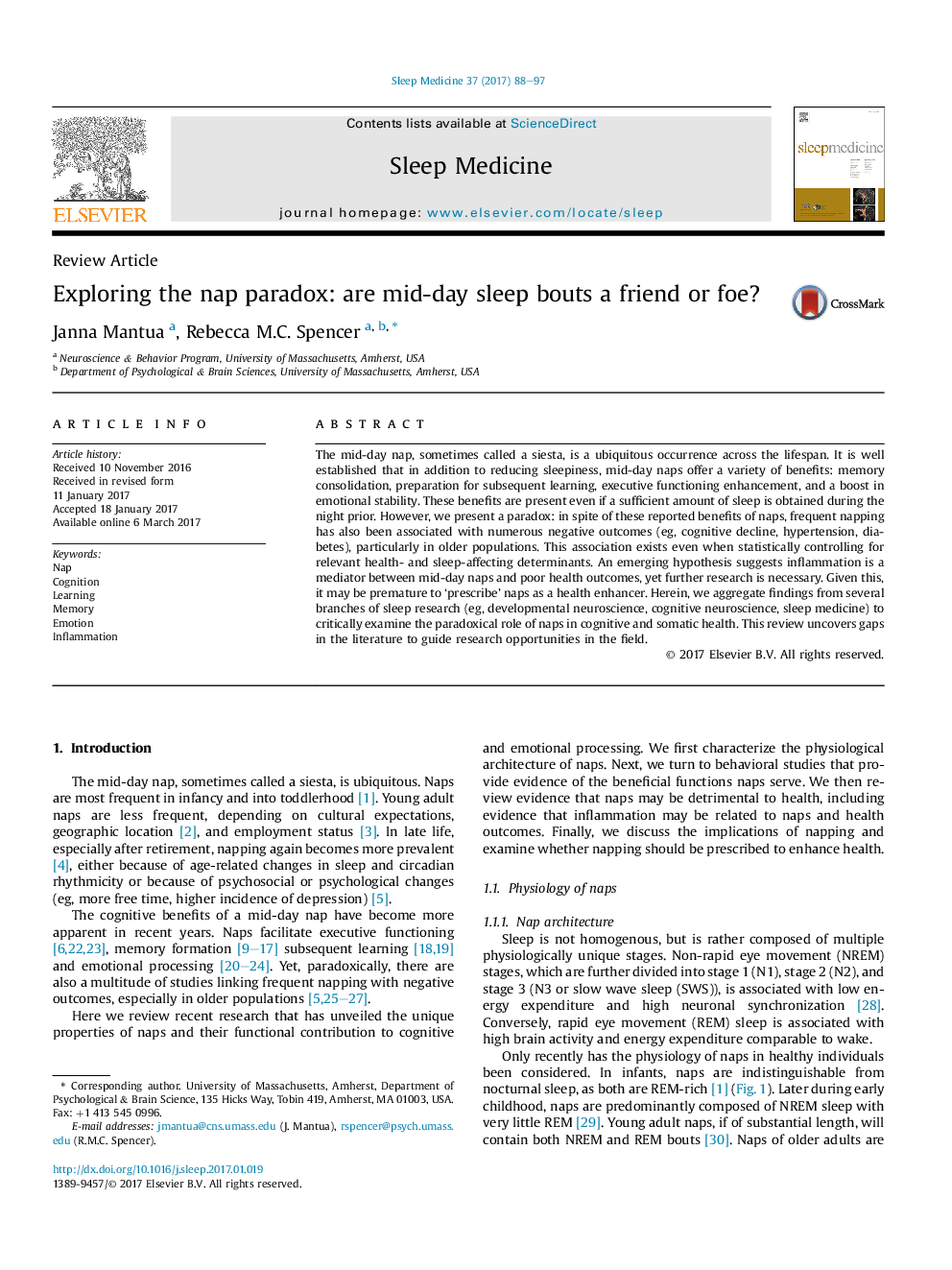| کد مقاله | کد نشریه | سال انتشار | مقاله انگلیسی | نسخه تمام متن |
|---|---|---|---|---|
| 5643853 | 1586472 | 2017 | 10 صفحه PDF | دانلود رایگان |
- Napping can facilitate cognitive and emotional health.
- Frequent napping is associated with negative health outcomes in older adults.
- Inflammation may mediate the link between frequent napping and poor health outcomes.
- Contradictions in the literature and future research recommendations are discussed.
The mid-day nap, sometimes called a siesta, is a ubiquitous occurrence across the lifespan. It is well established that in addition to reducing sleepiness, mid-day naps offer a variety of benefits: memory consolidation, preparation for subsequent learning, executive functioning enhancement, and a boost in emotional stability. These benefits are present even if a sufficient amount of sleep is obtained during the night prior. However, we present a paradox: in spite of these reported benefits of naps, frequent napping has also been associated with numerous negative outcomes (eg, cognitive decline, hypertension, diabetes), particularly in older populations. This association exists even when statistically controlling for relevant health- and sleep-affecting determinants. An emerging hypothesis suggests inflammation is a mediator between mid-day naps and poor health outcomes, yet further research is necessary. Given this, it may be premature to 'prescribe' naps as a health enhancer. Herein, we aggregate findings from several branches of sleep research (eg, developmental neuroscience, cognitive neuroscience, sleep medicine) to critically examine the paradoxical role of naps in cognitive and somatic health. This review uncovers gaps in the literature to guide research opportunities in the field.
Journal: Sleep Medicine - Volume 37, September 2017, Pages 88-97
